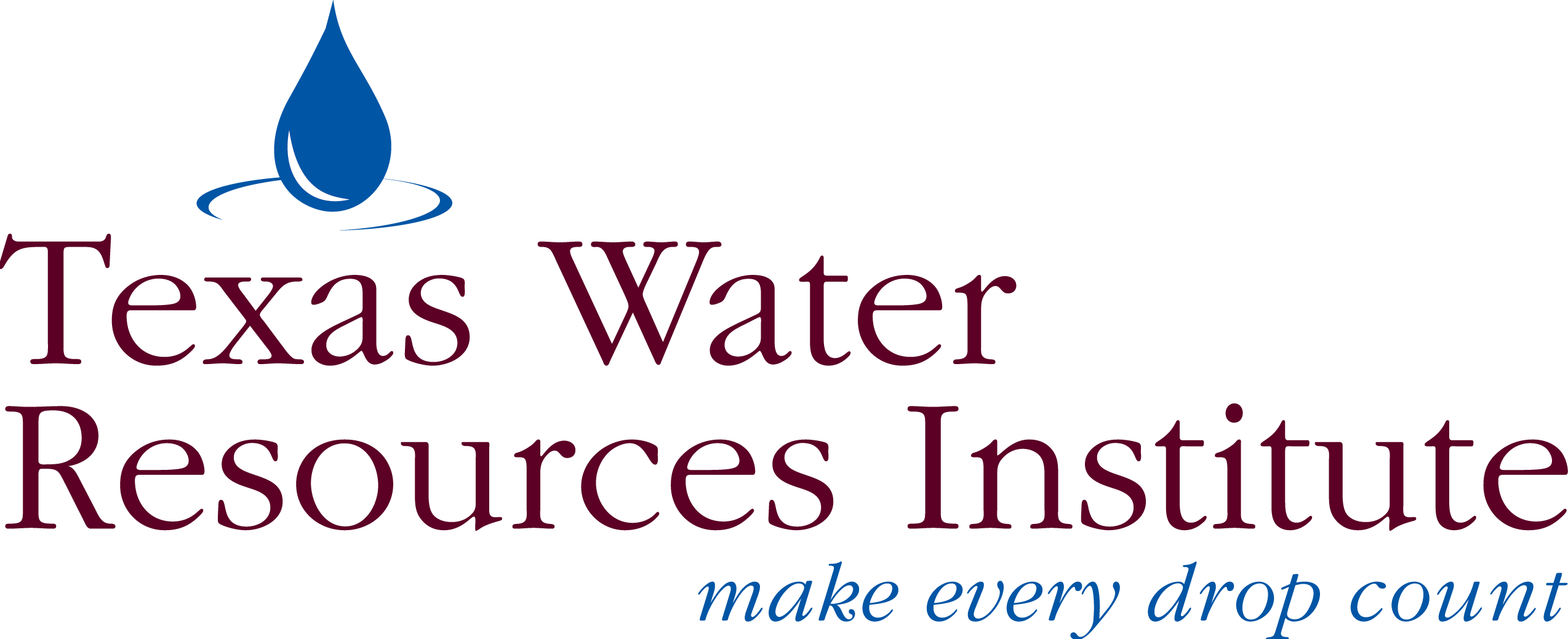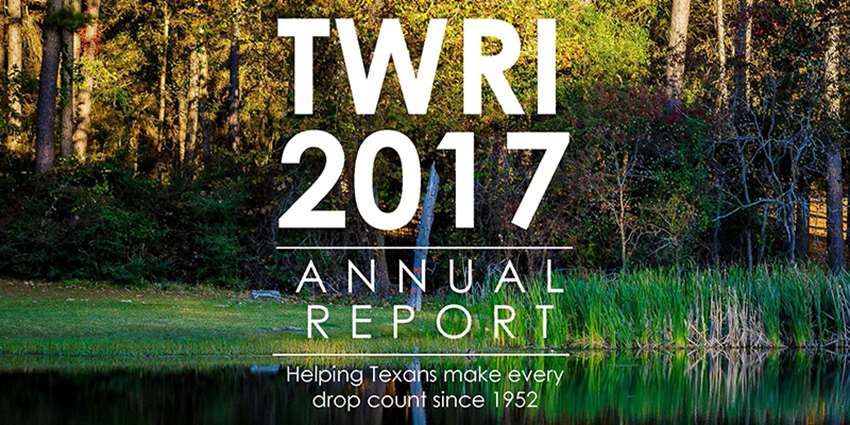The Texas Water Resources Institute (TWRI) has published its latest annual report, highlighting accomplishments from 2017.
For our Water Quality Improvement Program, we focused on the Matagorda Bay watershed along the Texas Gulf Coast, a diverse and rich ecosystem that sustains a robust commercial fishery, abundant wildlife and more than 300 species of birds. Our water team worked with more than 250 local stakeholders and eight state or regional agencies in the Tres Palacios, Lavaca and Carancahua Bay watersheds, all of which had portions designated by the state as impaired because of elevated levels of bacteria.
As part of our Water Sustainability Program, we began working with the USGS Water Science Centers in Arizona, New Mexico and Texas, Arizona Water Resources Research Center and New Mexico Water Resources Research Institute on the Transboundary Aquifer Assessment Program. In this program, we assessed hydrogeological transboundary linkages of aquifers and developed the first geological correlation of hydrogeological units between Texas and Mexico as well as a classification of aquifer potential. We also developed a ranking system to prioritize aquifers based on their level of “transboundariness,” an approach that prioritizes transboundary aquifers using socio-economic and political criteria.
Through our Water Resources Outreach and Training Program, our new Urban Riparian and Stream Restoration Program, in collaboration with AgriLife Research in Dallas, is bringing awareness, education and the value of riparian and stream restoration to urban areas around Texas with 15 workshops planned over three years.
In 2017, we participated in 62 projects with 58 total collaborations. In collaboration with Oklahoma State University and Kansas State University, we partnered with the USDA’s Southern Plains Climate Hub to host the Resilient Southern Plains Agriculture and Forestry in a Varying and Changing Climate conference in El Reno, Oklahoma at Redlands Community College. We also worked with almost two dozen faculty, research scientists, extension specialists and graduate students in AgriLife Research and Extension Centers, departments in the College of Agriculture and Life Sciences and the New Mexico Water Resources Research Institute at New Mexico State University in the new project, Diversifying the Water Portfolio for Agriculture in the Rio Grande Basin.
To learn more about our work, read the full report, view the electronic version and see the infographic below.




